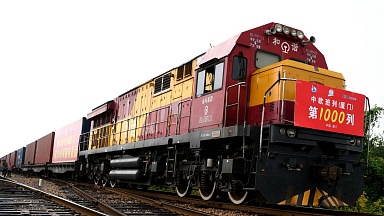Yemen’s Houthi rebels continue to attack ships passing through the Red Sea on their way to and from the Suez canal. As a result, shipping companies are forced to divert their shipping routes around Africa. Shipments of goods between Europe and China now take up to 15 days longer to reach their destination and have become more expensive.
A number of European logistics companies, among which are DHL, RailGate Europe and Rail Bridge Cargo, told the Financial Times that they are receiving up to 40 per cent more requests to transport goods via Russian rail. The Russian route has become faster and cheaper in comparison to maritime shipping. While a container ship departing China for Europe may take up to 55 days to reach European ports, a freight train between Chinese Chengdu and German Duisburg can be twice as fast.
Revenue for RZD
The main beneficiary of the growing demand for Russian rail transportation is the national rail operator RZD. The company owns Russia’s rail network, is the largest operator in the country and is owned by the Kremlin. It retains a near-monopoly position on Russia’s rail market.
The renewed demand for transit on its network will therefore generate extra revenue for the operator. While the EU has imposed severe restrictions on freight originating from Russia or travelling to it, transit of goods through Russia by rail remains possible.
While logistics companies report a stark increase in requests for rail transport through Russia, the total volume is not yet back to pre-sanction levels. For now, a large modern container ship can carry the same amount of cargo as the monthly volume of freight transiting Russia on its way to Europe.



